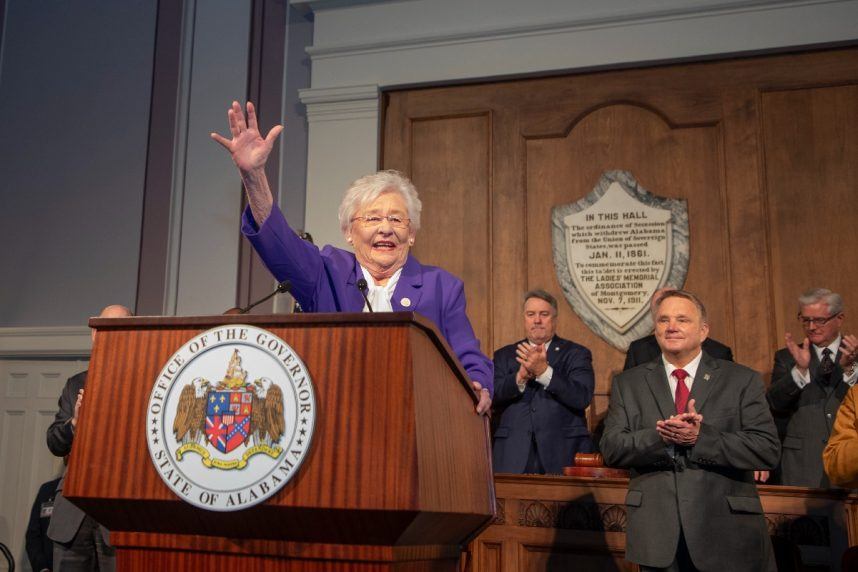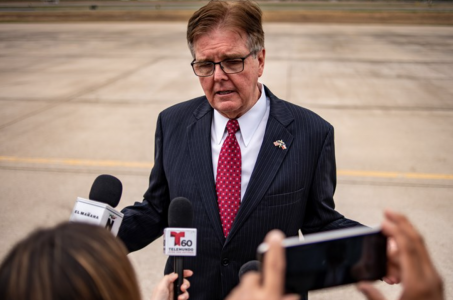Alabama Governor Urges Lawmakers to Legalize Casinos, State Lottery
Posted on: February 8, 2024, 02:44h.
Last updated on: February 8, 2024, 11:11h.
Alabama Gov. Kay Ivey (R) used her State of the State Address on Tuesday night to urge lawmakers in Montgomery to send a bill to her desk authorizing a state lottery, commercial casinos, or ideally, both.

For Alabama to expand gaming, voters must amend the state Constitution through a statewide ballot referendum. Ivey, in the latter half of her second four-year term, believes it’s past time that the Cotton State end its gaming prohibition.
“This year, when Alabamians make their way to the ballot box, I hope they will be voting on another issue: gaming,” Ivey said.
I believe the current proposal being contemplated by the Legislature is good for Alabama, and I will be carefully watching it move through the process. It will crack down on illegal gambling, and it will responsibly regulate limited forms of legal gaming, including a statewide lottery,” Ivey continued. “Now is the time for Alabama voters to have another say on this issue.”
Alabama is among the most restrictive gaming states. There is no lottery, commercial casinos, iGaming, or sports betting. Some counties have passed local referendums permitting pari-mutuel wagering, and charitable games are also allowed.
Ivey remains one of the country’s most popular governors. The 79-year-old, a former state treasurer and lieutenant governor, was ranked as the 10th-most popular governor last year by Morning Consult. She’s maintained an approval rating north of 60% during her tenure.
Financial Incentives
Alabama governors, including Ivey, have refused to enter into a Class III gaming compact with the state’s lone federally recognized tribe, the Poarch Band of Creek Indians. A compact would allow the Native American group to operate Las Vegas-style slot machines and table games at its tribal resorts.
The Poarch Creek Indians operate Class II casinos under the federal Indian Gaming Regulatory Act in Atmore, Montgomery, and Wetumpka. The Wind Creek casinos offer electronic, bingo-based gaming machines that mimic slots, but determine outcomes based on bingo simulations.
Ivey has in previous years expressed hostility to gaming, but she’s changed her tune in 2024. She reasons a legal market would protect consumers, keep gaming money inside Alabama, and generate new tax revenue for the state. Recent polling has also suggested that about seven in 10 Alabamians would support a gaming referendum.
A 2020 state-commissioned study on the benefits of lottery and casino gambling concluded that the state would receive $300 million to $400 million annually from commercial casinos with slots and tables, and $10 million from sports betting. A lottery could generate up to $200 million a year for the state.
The Alabama Legislature convened on Tuesday for its 2024 session, which runs through March 11. House Speaker Nathaniel Ledbetter (R-Rainsville) is behind a gaming package that would allow state voters to determine if they want to become a commercial gaming state.
Changing Opinions
Nearly every state in the U.S has some form of legal commercial gaming, with the exceptions being Alaska, Hawaii, and Utah. As gaming has greatly expanded over the past two decades, there’s been a major shift in public opinion regarding gambling.
The tide could have finally turned for states long opposed to gaming measures, says John DeCree, a senior global gaming analyst with CBRE Equity Research.
We are nearing critical mass on states with legalized gaming, especially for online sports betting and land-based casinos, making a progressively more meaningful case for states to avoid tax leakage,” DeCree wrote this week in a note on gambling expansion.
“With the rapidly changing voter sentiment, many states that have traditionally opposed gambling have moves that could push them over the edge in the near future,” DeCree continued. “Alabama continues to see bills shot down. However, there is diminishing opposition every year, and a new bill is set to be imminently introduced.”
Related News Articles
Alabama House Speaker Supportive of Gaming Bill to Protect Consumers
Alabama Tribal Casino Bill to Include Sports Betting, State-Run Lottery
Most Popular
Mega Millions Reportedly Mulling Substantial Ticket Price Increase
NoMad Hotel to Check Out of Park MGM on Las Vegas Strip
VEGAS MYTHS BUSTED: To ‘86’ Someone Was Vegas Mob Slang for Murder
Most Commented
-
End of the Line for Las Vegas Monorail
— April 5, 2024 — 90 Comments -
Mega Millions Reportedly Mulling Substantial Ticket Price Increase
— April 16, 2024 — 8 Comments -
Long Island Casino Opponents Love New York Licensing Delays
— March 27, 2024 — 5 Comments
















No comments yet